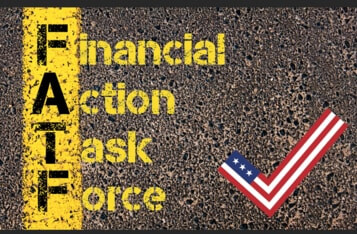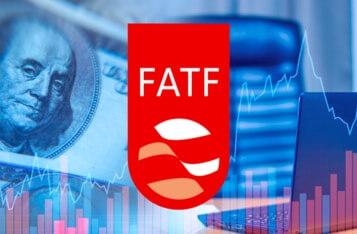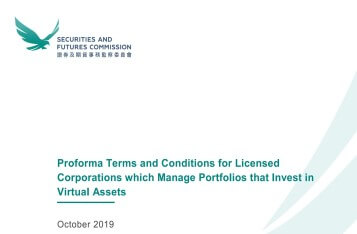Search Results for "virtual asset service providers (vasps)"
FATF Virtual Assets Guidelines for Cryptosphere Review
With the growing concern of virtual assets/cryptocurrencies being used as a medium for the financing of illegal activities, the Financial Action Task Force (FATF) issues revised guidance from time to time to combat money laundering and terrorist financing involving virtual assets (VAs) and virtual asset service providers (VASPs).
FATF Assessment Finds Majority of US Exchanges are Compliant with Virtual Asset Guidance
The Financial Action Task Force (FATF) has published an assessment of the US’s compliance with its revised criteria for anti-money laundering (AML) and terrorist financing (CTF) through virtual assets and found that most virtual asset providers are compliant.
Paraguay Begins to Audit Local Crypto Industry to Comply with FATF Guidelines
Paraguay is looking to take its cryptocurrency industry mainstream, in light of the Financial Action Task Force’s (FATF) guidance on virtual asset service providers (VASPs) released earlier this year.
UAE to Strive for Virtual Service Provider Licenses before Q2
In a bid to become a global crypto hub, the United Arab Emirates (UAE) is gearing up to issue federal licenses to virtual asset service providers (VASPs) by the end of Q1 2022.
Crypto & the FATF: ING Develops Travel Rule Protocol for Tracking Crypto Transfers Ahead of FATF Plenary Meeting
The FATF has a wide range of recommendations, a total of 40 to ensure regulatory alignment between the compliance imposed on financial institutions and the regulations in its member states. The FATF Travel Rule is Recommendation 16, which has received a lot of attention from the crypto industry, especially virtual asset service providers (VASPs).
Exclusive: Blockpass COO, on the Significance of the FATF Travel Rule to VASPs
Personal identity is a fundamental human right according to Article 8 of the United Nation’s Convention on the Rights of the Child. Identity is crucial to a functioning society and economy, however, there are 1.1 billion people in the world that do not have proof of identity and 45% of them are among the poorest 20% around the world. For enterprises, customer data protection can be proven costly as 2.8 billion consumer data records were exposed at an estimated cost of more than $654 million in 2018.
Crypto & the FATF Travel Rule: FinCEN Suggests Challenges in Governance, Not Technology
The Financial Action Task Force (FATF) Travel Rule has been in the center of attention lately, which concerns crypto transactions above a certain amount must be accompanied by identifying information.The rule is an update to the existing FATF Recommendation 16, regarding cross-border and domestic wire transfers, and is intended to address the anti-money laundering (AML) and counter-terrorist financing (CFT) challenges as crypto adoption increases. The FATF Travel Rule could mean implications for virtual asset service providers (VASPs), including cryptocurrency exchanges, wallet providers, and custodians.
The Cayman Islands Creates Regulatory Framework to Attract Virtual Asset Business
The Ministry of Financial Services of the Cayman Islands announced that it is building regulatory frameworks for individuals and entities that offer digital assets in business.
iComply on FATF Travel Rule: Cryptocurrency is Meant to be Trustless, Not Anonymous
iComply Investor Services (iComply) is a regulatory technology (Regtech) company focused on making financial markets more robust, secure, and efficient. We asked their CEO, Matthew Unger for his take on 2019 FATF Travel Rule Guidelines and find out what these recommendations really mean and how should exchanges or VASPs observe them?
HKSFC Guidance on Virtual Asset Fund Managers: The 4 Key Takeaways
The Hong Kong Securities and Futures Commission (HKSFC) released the latest guideline “Proforma Terms and Conditions for Licensed Corporations which Manage Portfolios that Invest in Virtual Assets”, providing further guidance on fund dealing and virtual asset fund management.
Mastercard Launches Virtual Platform to Help Governments Test CBDCs
Payment giant Mastercard has unveiled a virtual platform that will enable central banks to assess and explore Central Bank Digital Currencies (CBDCs).
Singapore Payment Services Act Now in Effect For Crypto Firms
The Monetary Authority of Singapore now requires cryptocurrency providers and exchanges to be licensed under some of the same regulatory elements as traditional financial service providers.












